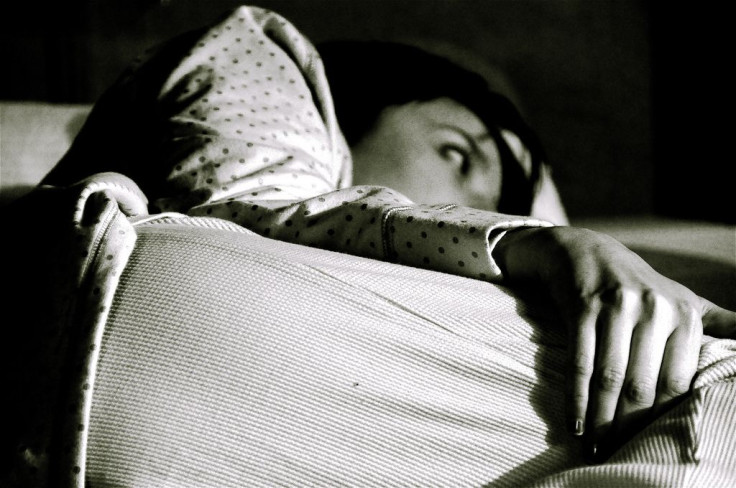What Causes Insomnia? Twin Study Finds Genetic Factors For Sleep Condition Stronger In Women Than Men

Evidence from a recent twin study conducted by researchers from the American Academy of Sleep Medicine (AASM) suggests insomnia may have significant genetic factors and that these hereditary influences are stronger in women than in men — a finding that may help researchers develop a more effective treatment for those suffering from chronic insomnia.
Insomnia is a common yet irritating sleep disorder affecting between 30 to 35 percent of the U.S. population, according to the AASM. However, according to a recent twin study, your likelihood to develop insomnia may have more to do with your genetic makeup and less to do with your recent Netflix binge. This research is the first to examine the both genetic and environmental influences on insomnia symptoms in adult twins.
For the study, which is published in the September issue of the journal Sleep, a team of researchers reviewed data on approximately 7,500 twin sets. According to the press release, Dr. Kenneth S. Kendler, one of the co-authors on the study, collected twins' self-report on their general sleeping habits in the past month via a questionnaire. This information was then used to create a composite score for insomnia symptoms. The twins' insomnia symptoms were then analyzed for phenotypic variance, or differences between DNA, to best determine the causes of the individuals' insomnia.
Insomnia is characterized by difficulty falling and/or staying asleep and it often cued by environmental factors such as a noisy sleeping room or mental and emotional stress. According to the Mayo Clinic, some of the most common insomnia symptoms include difficulty falling asleep at night, awakening during the night, awakening too early, and daytime tiredness and irritability, despite having an adequate opportunity for sleep.
Results from the study revealed that overall, mild insomnia symptoms were most commonly reported. Genetic influences did have a modest effect in adults, and insomnia was found to be at most 25 percent inheritable. However, the team noted gender differences in heritability rates, with the rate of heritability of insomnia for women estimated at 59 percent but only 38 percent for males.
"This study indicates that genes may play a larger role in the development of insomnia symptoms for women than for men, providing some of the first formal evidence for sex differences in an adult sample," first author Mackenzie Lind explained in a statement. According to Lind, these new findings suggest that researchers should develop a sleep intervention treatment "to specifically target females."
Although the study did not give much explanation for why women may be more susceptible to inheriting insomnia, past research has suggested that nocturnal demands of new motherhood, hormonal cycles, and increased tendency toward anxiety, stress, and depression, may explain why more women suffer from this common sleep condition, Sleep Review Magazine reported.
Although insomnia may often go away on its own, for some individuals it may increase sensitivity to pain and up their risk of self harm. There has been much recent research into finding an effective treatment for insomnia with cognitive behavioral therapy (CBT) and taking placebo pills. So far, CBT, which refers to a number of psychotherapy techniques that merge behavioral and cognitive therapy, has been found to to be up to 73 percent effective in as little as an hour.
Source: Lind MJ, Aggen SH, Kirkpatrick RM, e al. A Longitudinal Twin Study of Insomnia Symptoms in Adults. Sleep. 2015.



























